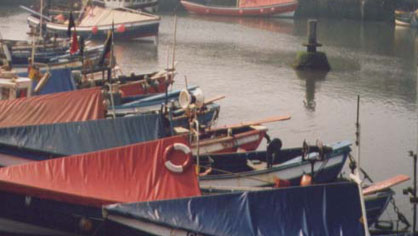8 June 2009
The current press excitement over the film The End of the Line raises two fundamental questions.
Those questions are:
- Do journalists sensationalise?
- Do the media exaggerate?
Once you have answered those two questions for yourself, you will be in a better position to understand the media convulsions that are currently gripping the press over fishing and collapsing fish stocks.
You would have to be pretty myopic to believe that there are no problems associated with the management of European and World fisheries but the huge gulf between the media’s apocalyptic visions of collapsing fish stocks and the more prosaic truth is simply vast.
The “facts” as reported in the Times today:
- “80% of EU fisheries are fully exploited or overexploited.” But conflating “fully-exploited” and “over-exploited” is a sleight of hand and it is used because it conveys the impression is of impending catastrophe. As a matter of fact, the current aim of fisheries managers is to achieve maximum sustainable yield and when that is achieved all fisheries will be “fully exploited”.
- Only 7 out of the 47 stocks around the UK are in a healthy state. Apart from the fact that there are many more stocks than 47 exploited around the UK, what does “healthy” mean in this context? It could mean “sub-optimal” and we would agree but the clear intention is to add to the narrative of doom and despair.
An alternative narrative, underpinned by verifiable fisheries science, could emphasise a different array of facts:
- North Sea cod is now showing strong signs of recovery and has responded well to management measures and improved recruitment
- UK fishermen are working collaboratively with fisheries scientists to improve the quality of scientific data and means of harvesting fish stocks sustainably
- The Newfoundland cod fisheries are at last showing signs of recovery
- The European Commission has published a Green Paper in which it proposes a radical decentralisation of the Common Fisheries Policy, opening the way for much more responsive and flexible fisheries management in the future.
- Over the last five years fishermen from many different EU countries have overcome old enmities and mistrust to work collaboratively with scientists and environmentalists in the ground-breaking regional advisory councils.
This narrative will never get the coverage of the doomsayers because measured, balanced, careful, well-researched will lose out to sensationalist, cataclysmic and shallow every time.
Take a bow Charles Clover (Telegraph) and Frank Pope (Times).

